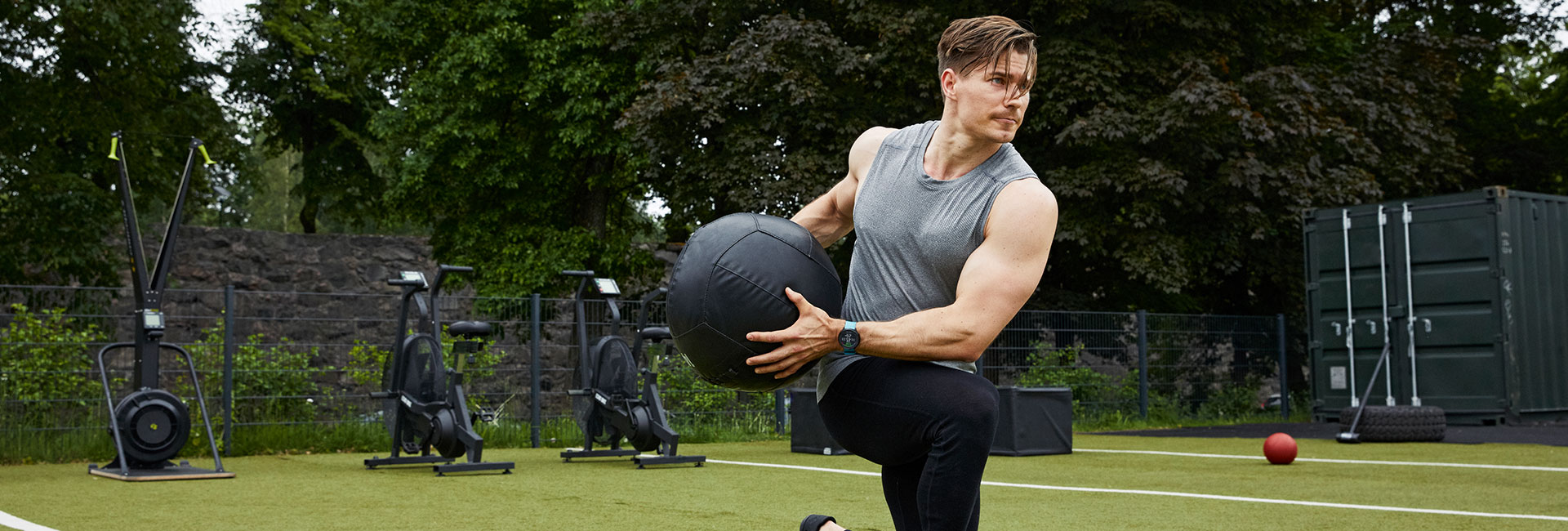Oftentimes we’re so focused on our physical fitness goals that we forget about the various mental benefits of exercise. As uncertainty and the feeling of losing control of everything that’s happening around us are commonly known as some of the biggest stress-inducing factors, this is the time to remind ourselves of the benefits of exercise for the mind.
Whether it’s COVID-19 or just the rigors of daily life that have you feeling down and stressed, exercise can be a great way to boost your mood and improve your overall health.
While self quarantine and social distancing might make daily exercise more challenging, staying active is still possible with a few modifications to your normal routine.
Let’s take a look at the mental benefits of exercise, specific ways physical activity can boost your mood, and a few things you can do to #StayStrong and healthy.
What Are the researched mental benefits of exercise?
Being sedentary and staying inside for long periods of time can lead to mild to moderate forms of depression or general anxiety. With large sections of the world under quarantine and isolation from one another, it’s easy to see how this can be a current problem for many people.
Fortunately, daily exercise has shown to combat many of these depressive symptoms by boosting mood, improving cognitive function, and reducing anxiety.
Exercise also releases endorphins in the brain to lift your mood naturally while providing improved self-image and feelings of accomplishment.
This is mainly due to increased serotonin levels in the brain during exercise, which is a chemical in the brain that helps to regulate mood, quality of sleep, and the production of new neurons.
Mood disorders have also been linked to a higher likelihood of cardiovascular disease, increased rates of obesity, and diabetes. By improving your mood through exercise, this study has shown that physical exercise can help to decrease the risk for developing these conditions.
So instead of getting down about things, it’s more important now than ever to get up, get moving, and exercise to boost your mood and increase your feelings of well-being.
What type Of exercise produces mental benefits?
The way that people respond to exercise can vary, and because of this no one type of exercise will be right for everyone.
One of the interesting findings of this study on exercise to enhance mood and treat depression and biopolar disorder was that aerobic and anaerobic exercise may be needed depending on the exact symptoms.
aerobic exercise
This can lead to all those good feelings.
For aerobic exercises, this study found that jogging, swimming, cycling, walking, dancing and even outdoor chores, like gardening, are good ways to reduce anxiety and cause an increase in exercise-induced blood circulation in the brain.
anaerobic exercise
As for anaerobic exercise, short sprints or an occasional game of basketball or soccer can be good for your heart or mood, too (when social distancing isn’t in effect), but it’s also important not to overdo it.
Outdoor Exercise
While any form of exercise is better than none at all, getting outdoors to exercise can have additional benefits and help to:
- Lower stress
- Make you feel happier
- Provide much needed Vitamin D.
moderate exercise
Finding a good balance and keeping your exercise routine light and fun seems to be key.
If gaining mental benefits of exercise and boosting your mood are your top priorities, you’ll want to avoid overtaining or long periods of intense physical exercise, which has actually shown to have negative effects on the brain and your health overall.
Examples of Exercise that can Boost Your Mood
While exercise might seem more difficult because of social distancing and gyms are closed, it’s still possible to get in a great workout with a few modifications.
Don’t believe us? Check out this inspiring man who ran the length of a marathon from his balcony during France’s coronavirus lockdown. Now that’s what we call mental fortitude and creativity.
Here are some forms of exercise you can try to boost your mood.
Kayaking or canoeing
If you’re able to get outdoors, it’s definitely recommended. Being outdoors and participating in low-impact cardiovascular activities, like kayaking or canoeing, can provide benefits for the brain and body. You’ll also tend to exercise longer outdoors than indoors, which is a good thing.
Just remember to exercise alone while quarantining laws are in affect and always maintain social distancing if you see others out and about.
Strength training
Lifting weights or circuit exercises with kettlebells help you maintain and build muscle (duh!), but can also elevate your heart rate and improve circulation, improving those feelings of well-being.
Bodyweight exercises
If you don’t have any workout equipment at home, bodyweight exercises or plyometric exercises are a great option as they force you to control your body, use deep muscles and raise your heart rate more than most weighted exercises because of the high number of repetitions.
Yoga
This meditative form of exercise can help to relieve stress and center your mind. Yoga is, in fact, more about the flexibility of the mind than muscles. Yoga can work as therapy for both body and mind, while boosting recovery from overall stress and improving your holistic well-being.
3 tips to reap the mental benefits of exercise
As research suggests, exercise brings not only physical but also various mental benefits. The question is: Are you making the most of it?
Here are some tips and things to keep in mind when your main goal is to reap the mental benefits of exercise.
Mix it up
If you’re stuck indoors right now, it’s important to mix things up to get your exercising mentally stimulating and to avoid burnout.
While activities like indoor cycling are great to maintain physical fitness, it can be tough mentally day after day.
Instead, create a routine that mixes up your activities daily and work on your weaknesses. Maybe you’ve been meaning to build more strength but running has always taken priority over supportive exercises or perhaps this is the ideal time to work on your mobility?
Do it quick and dirty
So, it seems that a quick workout is, indeed, better than no workout.
According to this study running for just 15 minutes per day can provide you with many of the mental health benefits needed to boost your mood, improve your health and reduce your chances of depression and many other mental health conditions.
If you find it hard to get motivated to exercise for long periods, try multiple short workouts instead:
- A 10-minute walk around the neighborhood.
- A push-up session in the afternoon.
- A quick morning yoga workout.
Get connected
Walking, running, and cycling with others is a great way to socialize and make you feel happier overall. While this can be a challenge during Covid-19, don’t let it keep you from getting together with others during your workouts.
Zoom, Face Time, or even just a quick call before, during, or after a workout can be motivating and make you feel less isolated. If you have a dedicated workout partner, schedule at least one weekly virtual workout with them and do it at the same time while online.
Those good feelings you get from exercise will be multiplied when you share your workouts with others.
If you liked this post, don’t forget to share so that others can find it, too.
Please note that the information provided in the Polar Blog articles cannot replace individual advice from health professionals. Please consult your physician before starting a new fitness program.




